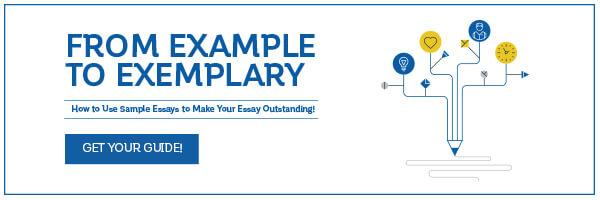Personal Statement Tip: Story Time (Part 1)
The moment I found the lump, I suspected my life was about to change—in a big way.
Good enough for an opening line? Want to read more? I hope it’s yes on both counts. Because I’m going to tell you a story. A short one. A true one. Not so much for the sake of this particular story, but to get you to think about your own life—your achievements, dreams, and challenges—in stories. It’s busy season, yours and ours, for applications, and one of the best ways to set yourself apart is to tell a good story, in individual essays and with your overall application.
So how do you tell a good story? It’s not about lifting plots from Harry Potter or hoping you suddenly gain magic storytelling powers. It’s about making sure to tie together several key elements. As a reader, filmgoer, and enjoyer of gossip (admit it), you already know them. But you probably haven’t thought of them formally as story elements and likely haven’t used them much since grade school.
The first element, as suggested above, is a killer opening. I have a whole blog post on this, so we’ll stick to basics: to get them to keep reading, start with something that grabs their attention. Usually it’s something in the middle of the action. If I’d started with One day I decided to watch TV (that’s what I was doing when I found the lump), you probably wouldn’t really care what happened next (um, I turned on the TV). Hopefully my actual opening makes you curious about the lump. But first we have to set context:
It was mid-May 2001. I was a busy consultant in McKinsey’s Chicago office, the proud father of a boy about to turn one, and a generally happy guy in his early 30s.
This part covers two key elements: it immediately places the killer opening in context and, in this case, introduces the stakes. Context (person, place, time) is important because readers want to understand the story’s circumstances; it helps them relate to the story, even if they’ve never been in that situation. Stakes are important because it’s hard to relate to a story if there’s little for the main character to lose. Luke Skywalker had to destroy the Death Star to prevent Darth Vader from taking over the universe, which would have meant a lot of suffering for everyone. If Dorothy couldn’t navigate Oz’s Yellow Brick Road past the Wicked Witch, she never would have gotten back home to Kansas. If I didn’t figure out the source of the lump and get it treated (if needed), I couldn’t have continued being a busy consultant, proud father, and generally happy guy. And remember, the universe (or even one’s life) needn’t be at stake to tell a story people relate to. But effective stakes are something most of us would fight for—health, a job, our community’s welfare, and the like.
It was tempting to wish the lump would just go away, and for a few days that was my strategy. I didn’t even tell my wife. But soon I recognized that knowledge is power, and made an appointment with my doctor. Within a week I had a diagnosis: cancer.
This keeps the reader interested because it brings in two new elements: an obstacle (cancer; see next month’s post and a previous one devoted to this element) and character (my personality traits). You know by now that I’m the main character, a consultant, father, etc. But the text above shows you what kind of character I am: one who’s human (tempted to wish something bad away) but also one who takes action in adverse circumstances (going to the doctor). Character isn’t only about positive traits though. Many essay questions ask you to discuss a time you failed or made a mistake. For those, you often highlight negative traits (e.g., Luke Skywalker’s lack of faith in himself and the Force) upfront, but in the context of how you gained insights and ultimately more positive attributes from dealing with their consequences.
Hopefully that gives you a good start on thinking about story elements—killer openings, context, stakes, obstacles, and character, so far—and how to use them in your essays. Next month I’ll wrap up with more on obstacles, outcome, and lessons learned. And of course I’ll tell you what happened in my story (though you can probably guess).
The admissions consultants at Accepted.com would be happy to help you use story elements to write effective essays.

 Accepted.com ~ Helping You Write Your Best
Accepted.com ~ Helping You Write Your Best
